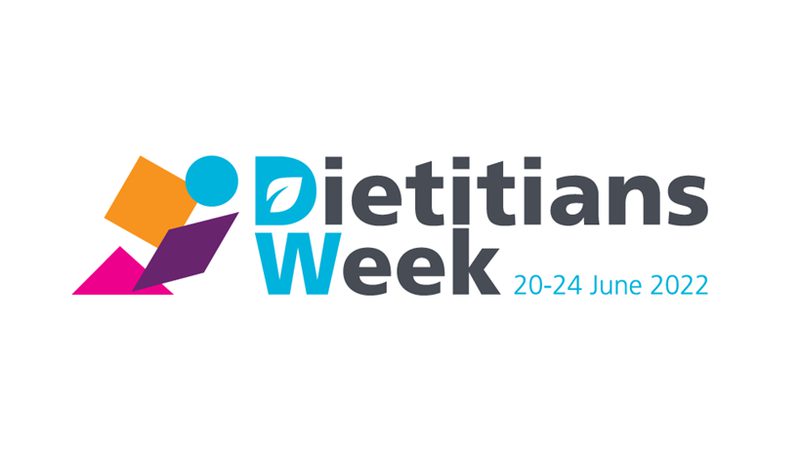
Posted on: June 21, 2022
How do we tackle malnutrition in the UK? Dietitians are central to the solution!
For Dietitians Week 2022, we reflect on the importance of dietitians and why they are central to tackling malnutrition in the UK.
This week is Dietitians week 2022 which celebrates the impact and value of dietitians in the UK. Here at BSNA, we collaborate and work with a range of dietitians across many specialities and we wanted to take the opportunity to recognise the value of this highly skilled profession.
Dietitians are health care professionals who interpret the science of nutrition to improve health and treat diseases/conditions by educating and giving practical, personalised advice to clients, patients, carers and colleagues.[1] Dietitians work across a range of specialities including gastroenterology, critical care, mental health, oncology, public health, prescribing support, parenteral and enteral nutrition and many more. In each role they use evidence based clinical judgement to help people meet their nutritional needs, considering the intricacies of the patient’s particular medical condition, biochemistry, social circumstances, personal abilities and preferences.
Dietitians have a key role in preventing and treating malnutrition[2]. Malnutrition is caused by insufficient dietary intake and is often due to reduced intake associated with the effects of disease and its treatment, for example, poor appetite, swallowing problems, the side effects of drugs, or physiological reasons.[3,4] Malnutrition, if unidentified and untreated can impair recovery, and increase risk of developing infections, pressure ulcers, physical and functional decline, poorer clinical outcomes, increased hospital admissions and mortality[2].
Malnutrition is estimated to cost the UK £23.5 billion annually and this cost is expected to rise as our population ages.[5] The British Association of Parenteral and Enteral Nutrition have estimated the health and social care costs to be three times greater for a malnourished patient compared to a non-malnourished patient.[2]
Dietitians possess the necessary expertise to identify, assess, manage, monitor, and review individuals to achieve patient-centred outcomes for the prevention and treatment of malnutrition.[6] Although not all patients at risk of malnutrition will need to see a dietitian, dietitians play a crucial role in leading the implementation of appropriate evidence-based malnutrition management pathways (such as the Managing Adult Malnutrition in the Community Pathway)[7] to support primary care professionals to effectively address malnutrition through early intervention.
This Dietitians Week, BSNA wish to recognise the work of dietitians in the 21st century fight against malnutrition in the UK.
[1] British Dietetic Association. What do dietitians do? Available from: https://www.bda.uk.com/about-dietetics/what-do-dietitians-do.html [Accessed 20 June 2022].
[2] Stratton R., Smith T. & Gabe S. (2018) Managing malnutrition to improve lives and save money. British Association of Parenteral and Enteral nutrition. Available from: https://www.bapen.org.uk/pdfs/reports/mag/managing-malnutrition.pdf [Accessed 20 June 2022].
[3] Gibbons T, Fuchs GJ. (2009) Malnutrition: a hidden problem in hospitalized children. Clin Pediatr. 48 (4), 356-361.
[4] Stratton RJ, Green CJ, Elia M (2003). Disease-Related Malnutrition: An Evidence-Based Approach to Treatment. Wallingford: CABI Publishing.
[5] Elia M. (2015) The cost of malnutrition in England and potential cost savings from nutritional interventions. British Association of Parenteral and Enteral Nutrition and the National Institute for Health Research Southampton Biomedical Research Centre. Available from: https://www.bapen.org.uk/pdfs/economic-report-full.pdf [Accessed 20 June 2022].
[6] British Dietetic Association. (2018) The Management of Malnourished Adults in All Community and All Health and Care Settings. Policy Statement. Accessed from: https://www.bda.uk.com/resource/the-management-of-malnourished-adults-in-all-community-and-all-health-and-care-settings.html [Accessed 20 June 2022].
[7] Holdoway A, et al. (2021) Managing Adult Malnutrition in the Community. 3rd Edition. Available from: https://www.malnutritionpathway.co.uk/library/managing_malnutrition.pdf [Accessed 20 June 2022].